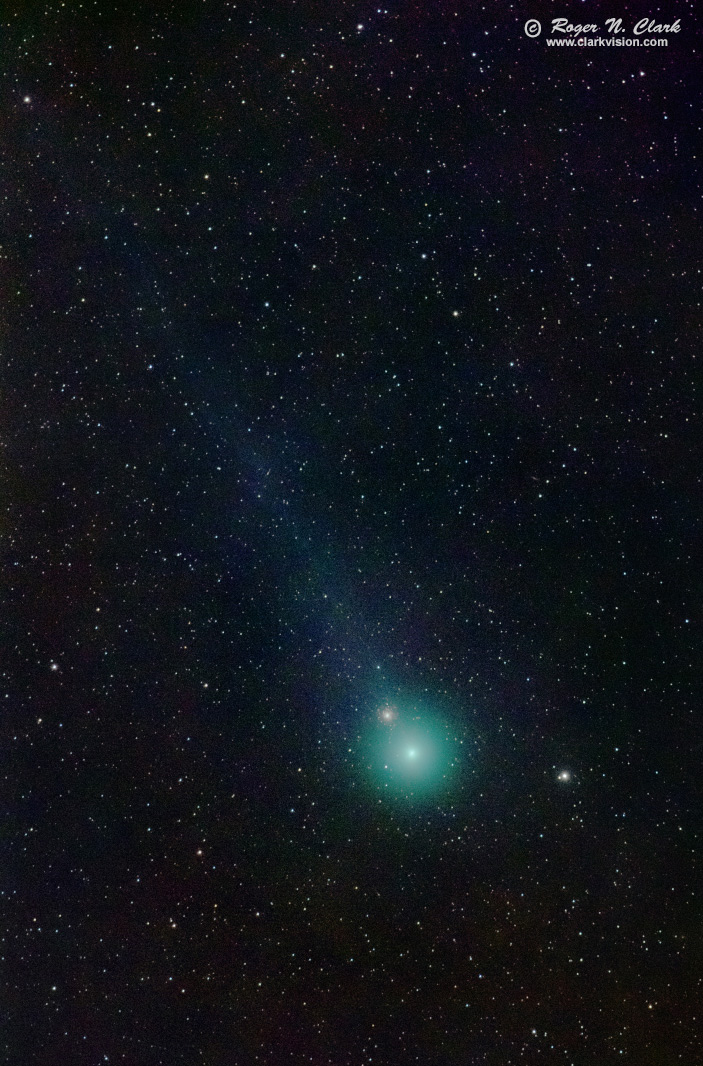| Home | Galleries | Articles | Reviews | Best Gear | New | About | Contact | Gallery Index | Previous |
Next |

| Home | Galleries | Articles | Reviews | Best Gear | New | About | Contact | Gallery Index | Previous |
Next |

Comet Lovejoy C/2014 Q2 passes just south of the globular star cluster M79 December 28, 2014. This image was made in the strong light pollution of metro Denver, Colorado with the first quarter Moon in the sky, and clouds swirling around. This image was made during a small break in the clouds. The cluster M79 is just above the comet in the tail. The comet was only 20 degrees high in a hazy sky.
Technical. This image was obtained with a Canon 7D Mark II 20-megapixel digital camera and 300 mm f/2.8 L IS II lens at f/2.8 and ISO 1600. No dark frame subtraction, no flat fields. IDAS light pollution filter. Tracking with an Astrotrac and no guiding. The 7.5 minutes total exposure (fifteen 30-second exposures). Stars to magnitude 16 were recorded.
The Exposure Factors, CEF, CEFA are measures of the relative amounts of light received from a subject. It can be used to fairly compare wildly different lens/telescope apertures and exposure times. For this image:
Modern DSLRs like the 7D Mark II include on sensor dark current suppression and low fixed pattern noise at ISOs around 1600 and higher, making no need for dark frame subtraction. Modern raw converters correct for light fall-off and also correct for hot/dead/stuck pixels. This makes processing low light images easy: simply align and average.
To learn how to obtain stunning images like this, please visit my Extensive Articles on Photography .
See my review of the Canon 7D Mark II and why it is so good for astrophotography: Canon 7D Mark II sensor analysis.
Keywords to this image = astrophoto-1 night low-light digital_astro comet canon_7d2
Image ID: comet_lovejoy_C2014Q2_rnclark_0J6A9990-05_e-bin4x4s.jpg
| Home | Galleries | Articles | Reviews | Best Gear | Science | New | About | Contact |
Last updated April 02, 2025